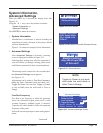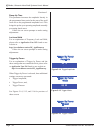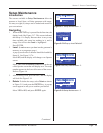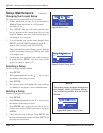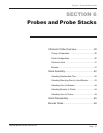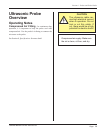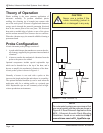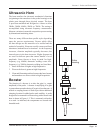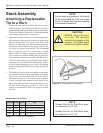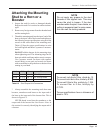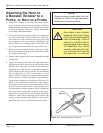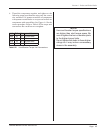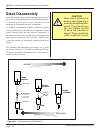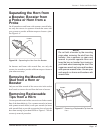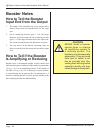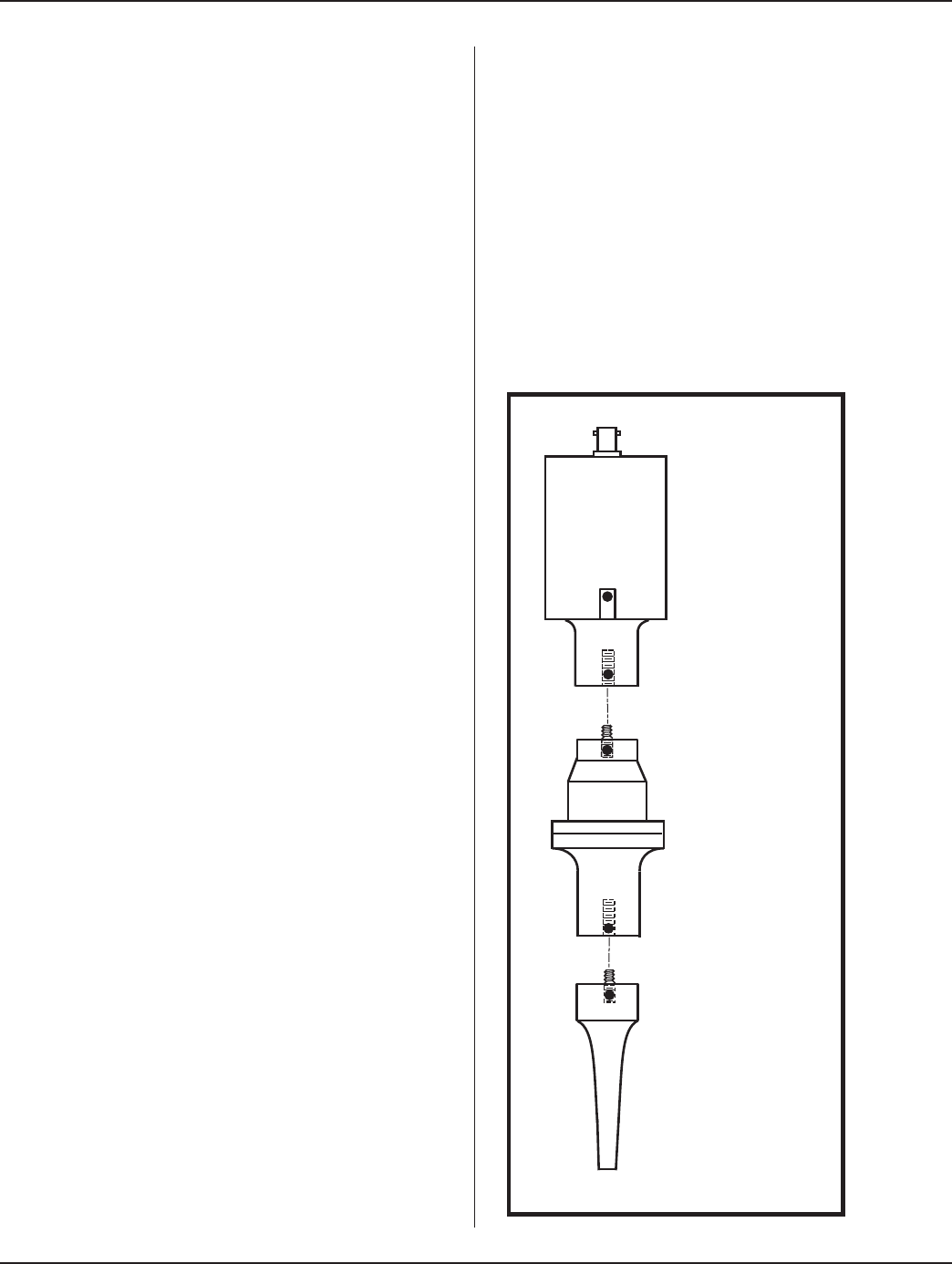
Page 41
Section 6 – Probes and Probe Stacks
Dukane Manual Part No. 403-583-00
Ultrasonic Horn
The horn transfers the ultrasonic mechanical vibrations
(originating at the transducer in the probe housing) to the
plastic parts through direct physical contact. The horn
is precision machined and designed to vibrate at either
20kHz, 30kHz, 40kHz, 50kHz or 70kHz. The tuning is
accomplished using electronic frequency measurement.
Inherent variations in material composition prevent tuning
by dimensional machining alone.
There are many different horn prole styles depending
upon the process requirements. Factors which affect
the horn design are the materials to be welded and the
method of assembly. Horns are usually constructed from
aluminum, hardened steel or titanium. As the frequency
increases, vibration amplitude typically decreases, but
internal stress in the horn increases. Higher frequencies
are used for delicate parts that cannot handle a lot of
amplitude. Some factors to keep in mind for high–
frequency (e.g. 40kHz) ultrasonic welding versus low–
frequency (e.g. 20kHz) ultrasonic welding are listed here.
1. Stress in the horn is higher at high frequencies.
2. Wear on the horn is greater at high frequencies.
3. Clean and at mating surfaces between the horn, booster
and transducer are more critical at high frequencies.
Booster
The function of a booster is to alter the gain (i.e. output
amplitude) of the probe. A booster is amplifying if its gain
is greater than one and reducing if its gain is less than one. A
neutral or coupling booster is used to provide an additional
clamping location for added probe stack stability. A probe
designed to be mounted in a xture along with a booster and
horn is shown in Figure 6–2. This is commonly referred to
as a stack. As indicated, the components are secured with
threaded studs.
Probe
Housing
Booster
Horn
Figure 6–2 Probe, Booster and Horn



